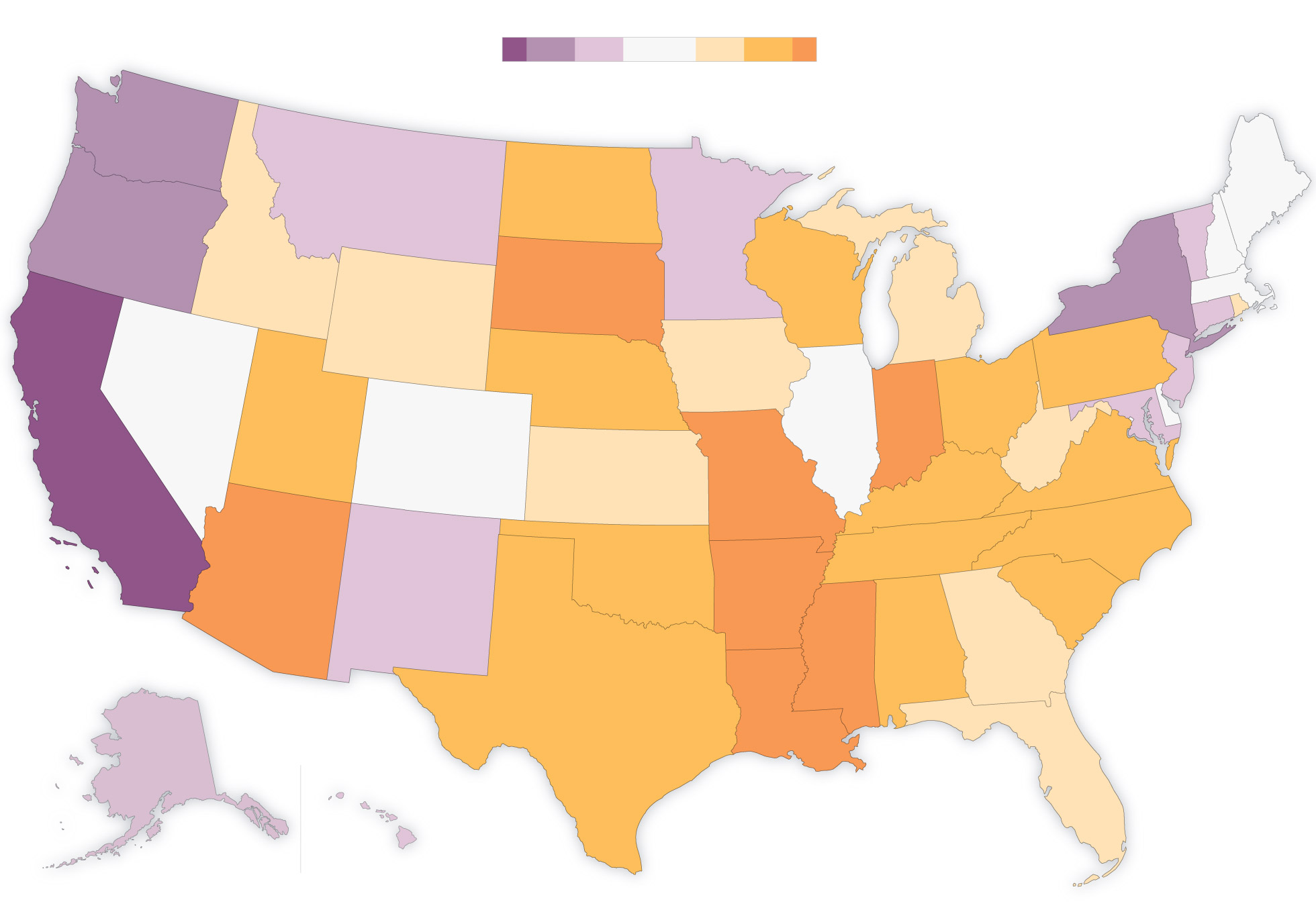Current Abortion Laws by State

Overview of Abortion Laws in the United States
The Supreme Court case Roe v. Wade in 1973 legalized abortion nationwide. However, it also gave states the power to regulate abortion after the first trimester. Since then, states have passed various laws restricting access to abortion, including waiting periods, mandatory counseling, and parental consent laws.
States with the Most Restrictive Abortion Laws
Some states have passed laws that severely restrict access to abortion. These states include:
- Texas
- Alabama
- Mississippi
- Ohio
- Georgia
States with the Least Restrictive Abortion Laws
Other states have passed laws that protect the rights of women to access abortion. These states include:
- California
- Colorado
- Oregon
- Washington
- New York
Current Abortion Laws by State
Alabama
Alabama has some of the most restrictive abortion laws in the country. The state has a mandatory waiting period of 48 hours, and minors must obtain parental consent before having an abortion. Additionally, the state bans most abortions after 20 weeks of pregnancy.
Key Points:
- Mandatory waiting period of 48 hours
- Parental consent required for minors
- Bans most abortions after 20 weeks
California
California has some of the least restrictive abortion laws in the country. The state does not have a mandatory waiting period, and minors do not need parental consent to have an abortion. Additionally, the state allows abortions up to 24 weeks of pregnancy.
Key Points:
- No mandatory waiting period
- No parental consent required for minors
- Allows abortions up to 24 weeks
Texas
Texas has some of the most restrictive abortion laws in the country. The state has a mandatory waiting period of 24 hours, and minors must obtain parental consent before having an abortion. Additionally, the state bans most abortions after 20 weeks of pregnancy.
Key Points:
- Mandatory waiting period of 24 hours
- Parental consent required for minors
- Bans most abortions after 20 weeks
Florida
Florida has some restrictive abortion laws. The state has a mandatory waiting period of 24 hours, and minors must obtain parental consent before having an abortion. Additionally, the state bans most abortions after 24 weeks of pregnancy.
Key Points:
- Mandatory waiting period of 24 hours
- Parental consent required for minors
- Bans most abortions after 24 weeks
Pros and Cons of Abortion Laws
Pros of Abortion Laws
- Protects the rights of the unborn child
- Reduces the number of abortions performed
- Provides support for women who choose to carry their pregnancy to term
Cons of Abortion Laws
- Restricts access to safe and legal abortions
- Can lead to unsafe abortions
- Violates a woman's right to privacy and bodily autonomy
FAQs About Abortion Laws
Q: Can states ban abortions altogether?
A: No. The Supreme Court case Roe v. Wade legalized abortion nationwide. However, states can regulate abortion after the first trimester.
Q: Can minors get an abortion without their parents' consent?
A: It depends on the state. Some states require parental consent, while others do not.
Q: Can women get an abortion after 20 weeks of pregnancy?
A: It depends on the state. Some states ban abortions after 20 weeks, while others allow them up to 24 weeks.
Q: Can women get an abortion if their life is in danger?
A: Yes. The Supreme Court has ruled that women have the right to an abortion if their life is in danger.
